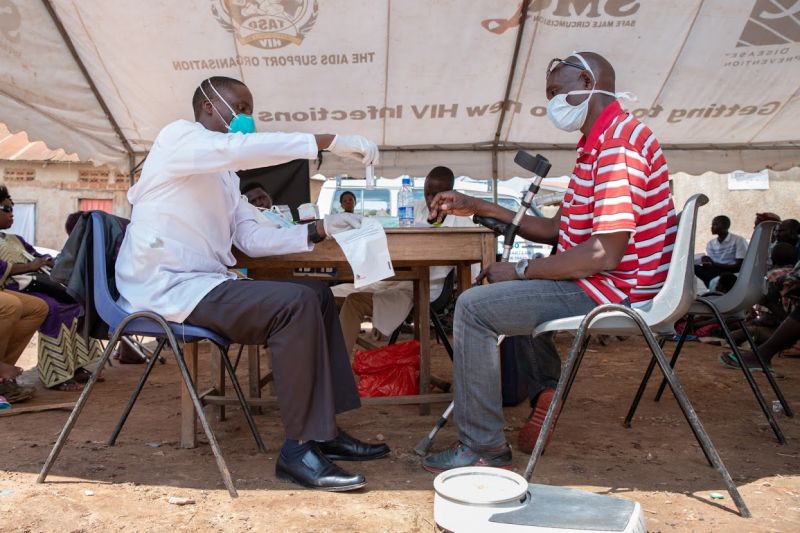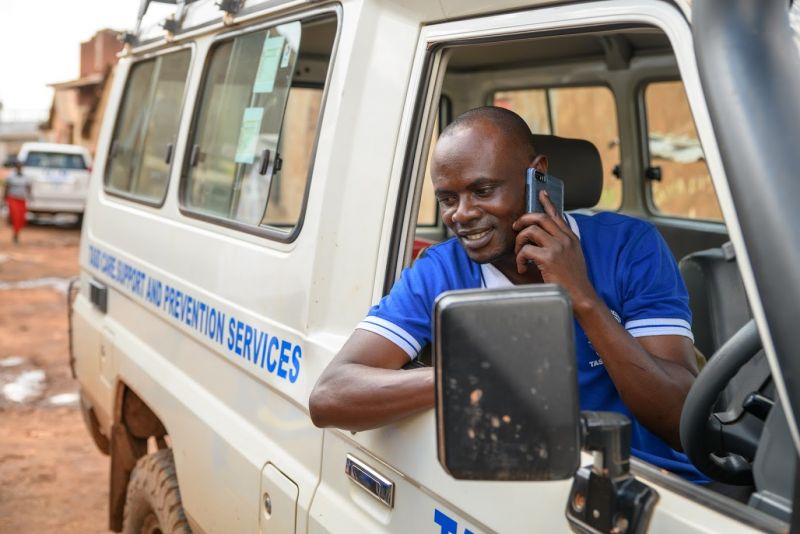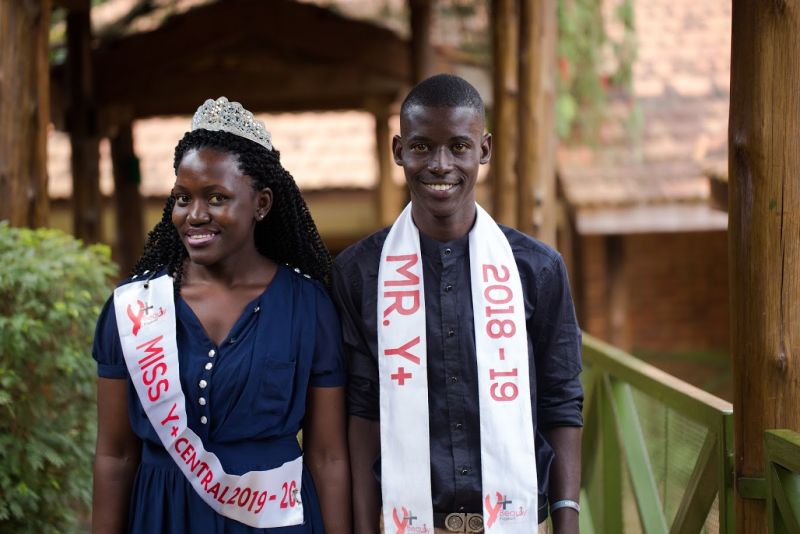This story, by Duniya Aslam Khan in Imvepi refugee settlement, Uganda, is reproduced from UNHCR, a UNAIDS Cosponsor
On a bright sunny day in northern Uganda’s Imvepi refugee settlement, Inga Viola and Rufas Taban sit comfortably under the shade of a jacaranda tree, leafing through an old register.
The pair are unrelated but share a unique bond – they were both diagnosed with HIV back in South Sudan, before civil war forced them to flee to Uganda in 2017.
“I was devastated when I found out,” says Inga, 32, who was diagnosed in 2014. “I felt like ending my life but I thought about my children and decided to live.”
Rufas, 49, nods solemnly, himself diagnosed in 2011.
Introduced to each other at Imvepi refugee settlement by their Ugandan nurse, Jedah Twebaze, they soon forged a friendship around their shared experiences – deep distress on finding out their status, leaving their homes behind and raising their families in exile.
They formed a support group, which they called the Friendship Serving Group, with Rufas, a former tax collector, as the secretary and Inga as the vice president. The group also doubles up as a savings cooperative and currently has 22 South Sudanese members, all HIV positive.
They contribute to the group’s kitty each month, sharing the accumulated savings at the end of the year. The group also helps spread HIV awareness in the community, while fighting the stigma associated with it.
“We use our meetings as an opportunity to talk about our wellbeing, check on members who are struggling with their status and provide counselling,” explains Inga.
She adds that they also educate each other on the importance of taking Antiretroviral therapy (ART) treatment – a life-saving course of medication that the conflict and the ensuing journey to safety disrupted, causing hers and Rufas’ health to deteriorate by the time they reached Uganda.
“I spent many days without taking medicine. Each new day without treatment meant getting closer to death,” she says.
Thanks to Uganda’s progressive refugee policy that has integrated refugees into the national HIV programme, refugees like Inga and Rufas are able to resume their treatment as soon as they arrive. They receive ART medication on a quarterly basis, free of charge.
The medications help suppress levels of HIV in the blood and slow damage resulting from the infection. It helps prevent progression from HIV to AIDS, thereby significantly extending life expectancy and reducing the risk of transmitting the virus to zero.
“I thought to be HIV positive meant dying soon but our kind nurse told us that with regular medication, we can live a very normal life,” says Inga, looking at nurse Jedah, who’s been nicknamed, ‘Dr. HIV’ by refugees for his advocacy and commitment to educate both refugees and Ugandans on HIV/AIDS.
Jedah works at UNHCR’s partner agency, Medical Teams International (MTI) and observes that the level of stigmatization among South Sudanese refugees has improved significantly.
“Educational sessions with the communities here have yielded positive results in fighting stigma,” he says.
According to UNAIDS statistics, by the end of 2018, an estimated 1.4 million Ugandans were living with HIV – 1.2 million were aware of their positive status and 72 per cent of them were on ART.
Currently, over 17,000 refugees receive ART treatment across all the health facilities in Uganda’s refugee settlements where both refugees and nationals can access healthcare.
Earlier this year, Uganda launched a multi-year, Health Sector Integrated Refugee Response Plan, aimed at strengthening refugee healthcare through an integrated approach. Health services to refugees are currently aligned to the country’s national health policy and Health Sector Development Plan.
Such progressive policies and programmes that support both refugees and their host communities will be among the topics under discussion at the Global Refugee Forum, a high-level meeting 17-18 December in Geneva. States, the private sector and others are expected to announce high-impact contributions that will give refugees a chance to thrive alongside their hosts.
For Inga and Rufas, unrestricted access to treatment and a positive attitude towards HIV patients has not only made their life in the refugee settlement easier but it has also alleviated stigma.
“People here treat HIV patients just like anyone who has any other illness,” says Inga.
Another key milestone is the decline in mother-to-child transmission rates. Eighty-nine per cent of pregnant women who visited health centres were tested for HIV to prevent transmission to the unborn child.
“It is through these interventions that Inga and Rufas’ children are all HIV negative,” explains nurse Jedah.
The strong advocacy role played by communities in fighting stigma and spreading awareness is recognized in the theme of this year's World AIDS Day on1 December, which is ‘Communities make the difference.’
While Inga and Rufas do their part to make a difference, more needs to be done to ensure that the AIDS response at national and international level remains an essential one.
“Let us control HIV because no one should contract this disease,” Rufas says. “As we know, prevention is better than cure.”
















